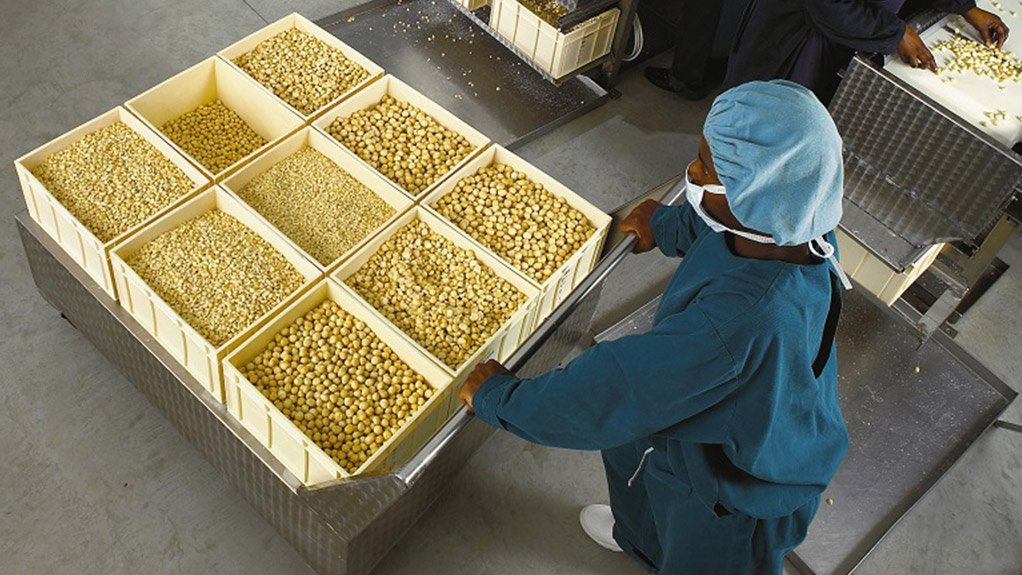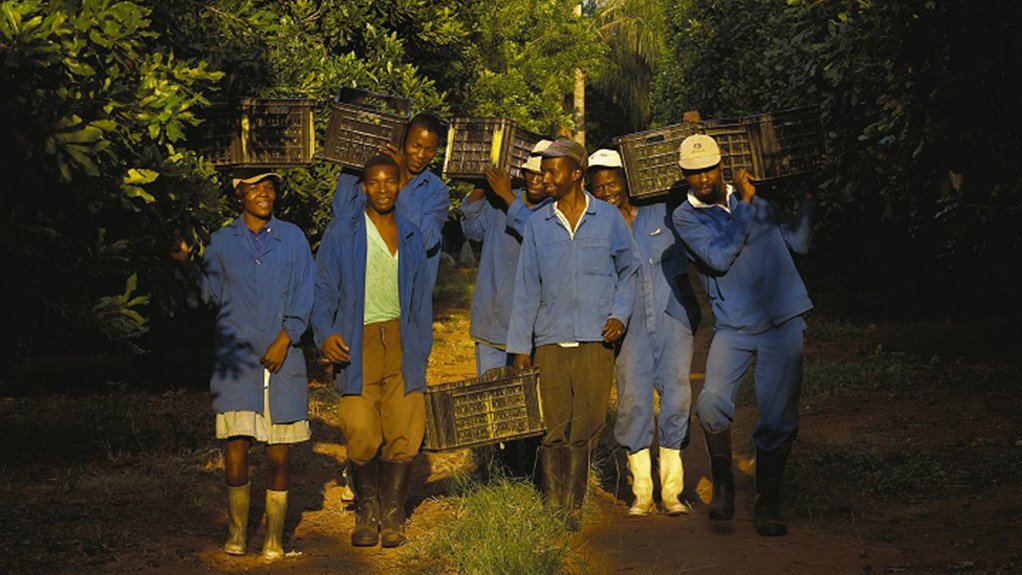S Africa’s macadamia industry may see substantial losses as Chinese exports fall through
The South African macadamia nut industry is in chaos, as up to half the country’s macadamia harvest for 2015 destined for China will now have to find other markets.
“That’s very difficult to do overnight,” said Green Farms Nut Company CEO Jill Whyte in a statement on Wednesday, adding that many farmers may now sit with high levels of carry over stock and, as a result, substantial losses.
The Chinese government had cracked down on corruption in the importation of agricultural products, causing South African farmers to once again confront that “opportunism in product marketing” carried immense risk.
Traders and middlemen had been found guilty of avoiding duties and China’s strict country of origin regulations by either disguising the true value of meat, fish, citrus and nuts they were importing or using ports of entry in countries such as Vietnam and Hong Kong, where duties were lower or did not apply.
Producers, processors and marketers had steadily increased their exports to China to 50%. In fact, of the four largest local producers, one had been exporting more than 90% of its stock to China, another 70% and a third 50%.
“Only Green Farms Nut Company has maintained its Chinese exports at 20%,” the company advised.
With many offtakers in China now in jail, on the run, or unable to fund imports because so-called shadow banks used by the illegal traders were no longer supplying cheap finance.
“Considering that building a macadamia farm is a long-term commitment, with trees taking up to seven years to bear fruit, we have always ensured that the farmers who supply us have access to multiple markets. Even though prices in China have been attractive and, therefore, very tempting in terms of increasing one’s exports, we’ve never exposed our producers to the risk of any one market going sour for whatever reason,” she explained.
However, that did not mean that Green Farms Nut Company did not want to do business in China. “It’s a huge market that holds potential for immense growth for all of us. So, we’re delighted that China is making the market more stable by taking action against corrupt traders and middlemen.
“This current crisis is not about China. It’s about how we as producers and processors should be tackling our marketing,” Whyte advised.
As with many other sectors within agriculture, macadamia producers had four marketing options.
The most obvious one, the co-op, had a long history in local agriculture. If the co-op was managed well, then farmers did well – although dividends were not always guaranteed.
Another option was traders locking farmers in for a 1% share of the processing plant profits. The downside to this was that the dividend was too small to compensate for potential poor price losses.
The third option, which had led to current threats to profitability in the industry, was opportunistic marketing through traders and middlemen who offered short-term benefits by grabbing once-off prospects.
“As is now evident, the risks inherent in this approach are high. They include the possibility that traders may be buying raw stock, nut in-shell, for processing at much lower cost in Chinese factories and on-selling into other markets, where the kernels will compete with South African products,” Green Farms Nut Company noted.
The fourth business model, which was implemented by the company, encompassed profit sharing. Producers paid a flat rate for processing, which was published upfront each season. Green Farms Nut Company took a 4% commission on marketing, which was done through its partnership with macadamia marketing company Green & Gold.
Producers received 100% of all sales and exchange benefits that then accrued. Their nuts were marketed all over the world, with 20% each going to China and the US, and smaller percentages being supplied to regions like Europe and South America. Green & Gold also focused on opening new markets on an ongoing basis.
“We’ve grown steadily on the back of a marketing strategy that is all about balance, consistency and trusted relationships. It’s one of the reasons, that as South Africa’s first-ever macadamia processor, we’ve remained sustainable through economic downturns and market upheavals such as the present one in China. It’s what enables us to deliver for our producers. In this crisis, we’ve been able to sell all our producers’ stock already and get them a good return,” Whyte highlighted.
Comments
Press Office
Announcements
What's On
Subscribe to improve your user experience...
Option 1 (equivalent of R125 a month):
Receive a weekly copy of Creamer Media's Engineering News & Mining Weekly magazine
(print copy for those in South Africa and e-magazine for those outside of South Africa)
Receive daily email newsletters
Access to full search results
Access archive of magazine back copies
Access to Projects in Progress
Access to ONE Research Report of your choice in PDF format
Option 2 (equivalent of R375 a month):
All benefits from Option 1
PLUS
Access to Creamer Media's Research Channel Africa for ALL Research Reports, in PDF format, on various industrial and mining sectors
including Electricity; Water; Energy Transition; Hydrogen; Roads, Rail and Ports; Coal; Gold; Platinum; Battery Metals; etc.
Already a subscriber?
Forgotten your password?
Receive weekly copy of Creamer Media's Engineering News & Mining Weekly magazine (print copy for those in South Africa and e-magazine for those outside of South Africa)
➕
Recieve daily email newsletters
➕
Access to full search results
➕
Access archive of magazine back copies
➕
Access to Projects in Progress
➕
Access to ONE Research Report of your choice in PDF format
RESEARCH CHANNEL AFRICA
R4500 (equivalent of R375 a month)
SUBSCRIBEAll benefits from Option 1
➕
Access to Creamer Media's Research Channel Africa for ALL Research Reports on various industrial and mining sectors, in PDF format, including on:
Electricity
➕
Water
➕
Energy Transition
➕
Hydrogen
➕
Roads, Rail and Ports
➕
Coal
➕
Gold
➕
Platinum
➕
Battery Metals
➕
etc.
Receive all benefits from Option 1 or Option 2 delivered to numerous people at your company
➕
Multiple User names and Passwords for simultaneous log-ins
➕
Intranet integration access to all in your organisation





















